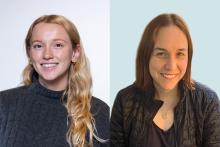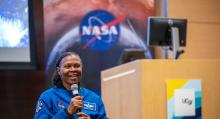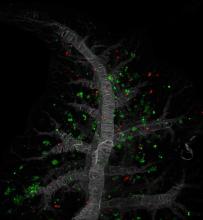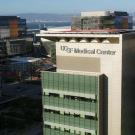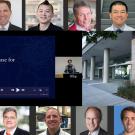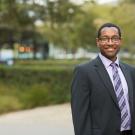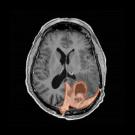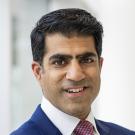News
Showcasing Art that Celebrates Creativity and Healing Amid Cancer
They aren’t professional artists, and to have their work featured by a major metropolitan museum seemed unfathomable. They’d been diagnosed with a gamut of cancers including brain cancer, breast cancer, multiple myeloma, colon, ovarian cancer. Some were diagnosed many years ago, others as recently
UCSF Radiation Oncologists Featured at Radiation Oncology Conference
UC San Francisco researchers and clinicians presented innovative research and treatment strategies at the American Society of Radiation Oncology’s 2025 Annual Meeting in San Francisco, which ran from Sept. 27 to Oct. 1. The 67th ASTRO annual meeting was centered around the theme of “Rediscovering
UCSF Surgeons, Researchers Share Expertise at Surgical Conference
Managing perioperative opioid risks, improving detection of peripheral artery disease and surgical management of hard-to-treat gastrointestinal cancers, were among the topics UCSF surgeons, clinicians, and researchers discussed at the American College of Surgeon’s 2025 Clinical Congress in Chicago
Showcase Offers Range of Cancer Biology Research for Graduate Students
In September, our Office of Education and Training coordinated a Cancer Research Showcase for Graduate Students, designed to introduce the vibrant cancer research community at UCSF to students across PhD and MD/PhD programs who wish to pursue a degree in cancer biology. The goal of the event was to
Checking in with Dr. Sam Washington
Growing up in Houston, Dr. Sam Washington was the kid with the volcano kits, the chemistry sets, and a circle of family friends who happened to be surgeons. A peek into the operating room at 16 set him on a path that would lead from UC Davis to UCSF, with a focus on community-driven cancer research
Could This Birth Control Shot Increase Your Risk for Brain Tumor?
1 in 4 sexually active women has used injectable birth control, administered into the muscle by a clinician, but many may be unaware of its association with meningioma, the most common brain tumor in adults. In Europe and Canada, the drug is mandated to carry a warning — but not in the U.S. David
Novel Immunotherapy Combination Destroys Colorectal Liver Metastases
Advanced colon cancer is the leading cause of cancer-related death in young American men and the second highest worldwide. In the majority of these patients, as the cancer advances it metastasizes to the liver. Despite progress in surgical therapies aimed at eradicating the cancer, many of these
